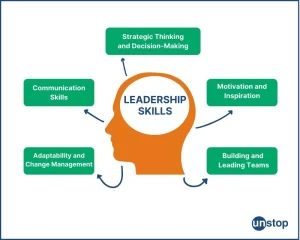In today’s fast-paced and ever-changing business environment, strong leadership is critical for success. Leadership programs are designed to help professionals build the skills and confidence needed to excel in any industry.
Whether you’re a manager, team leader, or executive, participating in a leadership program can equip you with the tools necessary to navigate complex challenges, manage teams effectively, and make informed decisions that drive business success.
Table of Contents
Key Skills Developed in Leadership Programs
1. Decision-Making and Problem-Solving
At the core of every leadership program is the development of decision-making and problem-solving skills. Leaders must be able to analyze situations, evaluate data, and make choices that align with their organization’s goals. Leadership programs often include training on how to assess risks, understand market trends, and make strategic decisions that benefit the organization in the long term.
Participants are taught how to tackle complex problems by breaking them down into manageable components, considering all possible outcomes, and using data-driven insights to make informed decisions. These skills are critical in any industry, whether you’re leading a team, running a business, or making high-stakes choices for a global corporation.
2. Communication Skills
Effective communication is one of the most important qualities of a successful leader. Leadership programs emphasize the need for clear, concise, and persuasive communication. Whether you’re delivering a presentation to the board of directors, engaging with clients, or providing feedback to employees, strong communication skills are essential for building trust, inspiring teams, and influencing stakeholders.
Leadership programs teach participants how to tailor their message to different audiences, engage in active listening, and use body language and tone to reinforce their message. They also cover how to navigate difficult conversations, such as providing constructive criticism or resolving conflicts within a team. These communication skills help build strong relationships and enhance leadership effectiveness.
3. Emotional Intelligence and Conflict Resolution
Emotional intelligence (EQ) is a vital skill for leaders who want to build cohesive teams and foster positive workplace environments. Leadership programs help participants develop their emotional intelligence by teaching them to recognize and manage their own emotions, as well as understand the emotions of others. Leaders with high emotional intelligence are better equipped to handle stress, remain calm under pressure, and respond empathetically to the needs of their teams.
Conflict resolution is another key focus of leadership programs. In any organization, conflicts are inevitable, but it’s how leaders handle these situations that makes a difference. Leadership programs teach participants how to mediate conflicts, manage tensions, and maintain a productive work environment. By addressing issues with understanding and fairness, leaders can ensure their teams remain motivated, engaged, and collaborative.
4. Team Management and Motivation
Leaders are responsible for motivating and guiding their teams toward shared goals. Leadership programs teach participants how to manage diverse teams effectively, foster collaboration, and delegate tasks based on individual strengths. Effective team management is not just about assigning tasks, but also about creating an environment that encourages open communication, accountability, and mutual respect.
Leadership programs also focus on how to inspire employees to perform at their best. Motivating teams involves understanding what drives each individual, setting clear goals, and offering support and recognition when necessary. These skills are crucial for leaders who want to achieve high levels of performance and create a positive organizational culture.
By focusing on both technical and interpersonal skills, leadership programs prepare participants for the challenges of leading teams, managing change, and driving business success. Regardless of your industry, the skills you develop in a leadership program will help you thrive as a leader and achieve long-term success.
